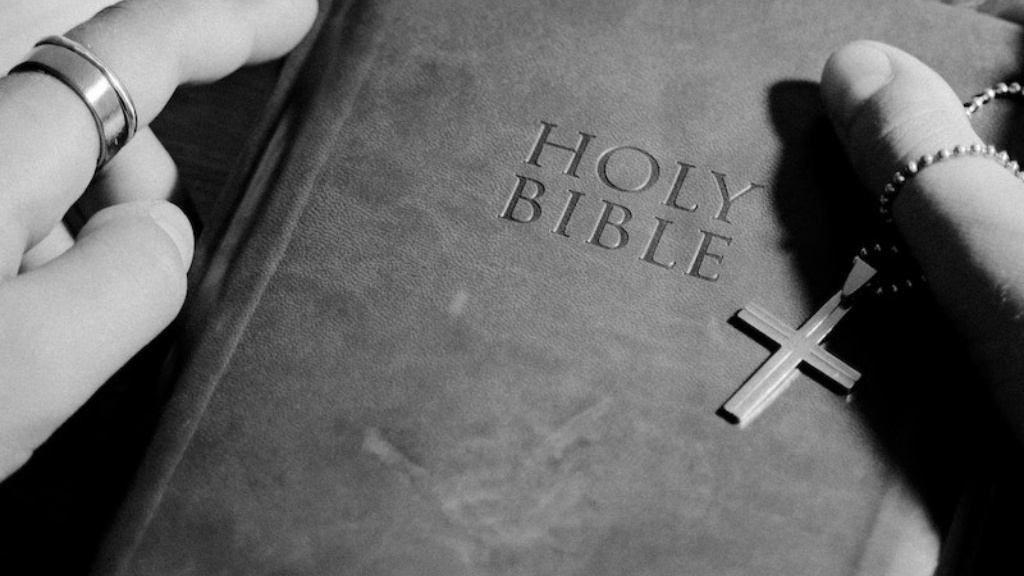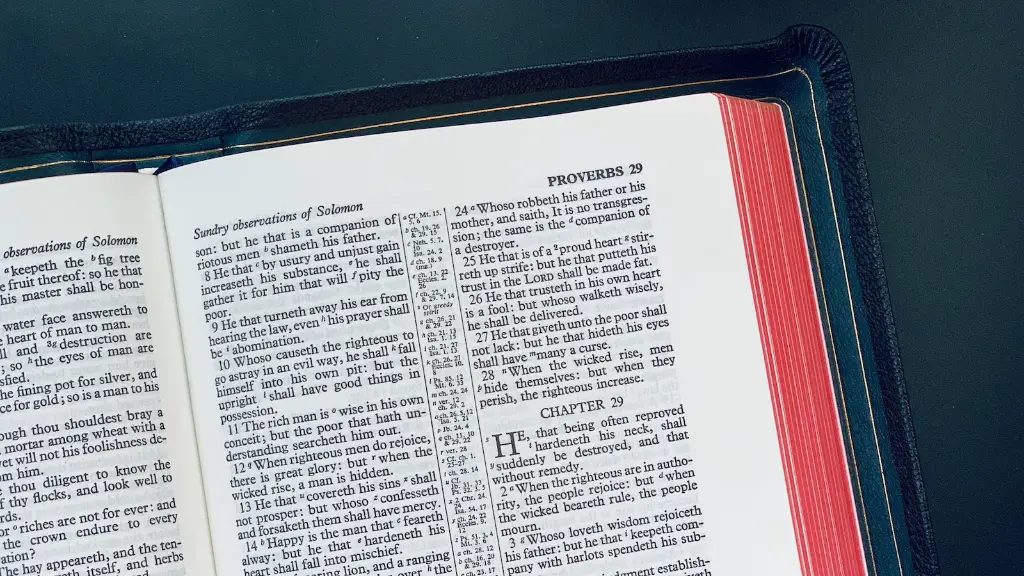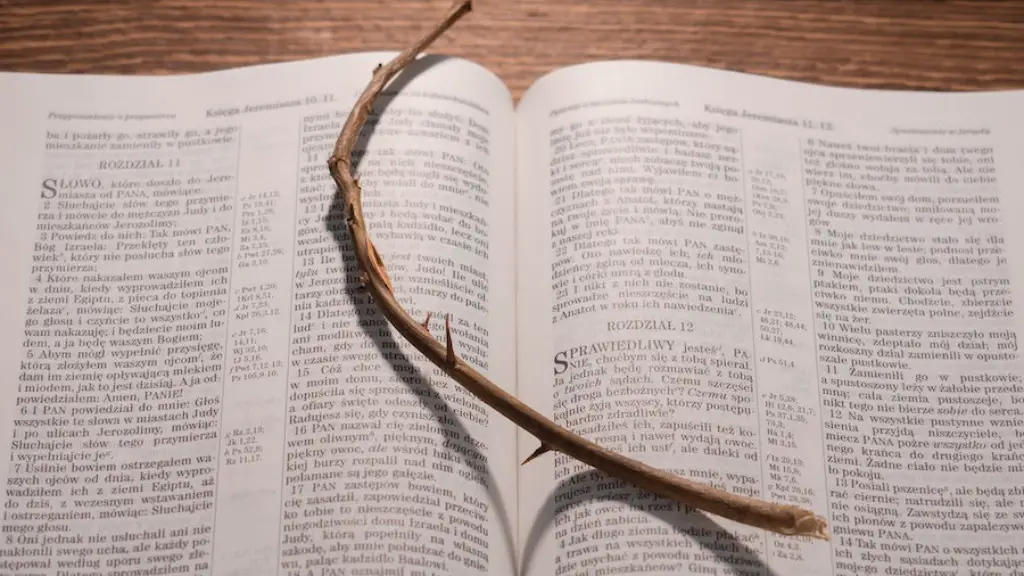The Tribe of Judah in the Bible
The tribe of Judah is a significant part of the Bible and is the namesake of the Jewish people. In the Hebrew Bible, it is the fourth son of Jacob and Leah, and their eldest surviving son. The name Judah means “praise”. In the Biblical narrative, Judah will become the ancestor of the Israelite tribe of Judah, and the ancestor of the Judean dynasty of kings.
According to the Bible, all the descendants of Judah were known as the “Tribe of Judah”. This group of people were given the southernmost part of the Land of Israel as their own territory. They were also the leading tribe of the Israelite confederation and became the preeminent tribe during the Kingdom of Israel and the Kingdom of Judah.
During the Exodus, when the Israelites left Egyptian slavery, it was the tribe of Judah that led the way. When it came time to enter the Promised Land, it was Judah that first set out with their leader, Caleb. Even when the other tribes refused to go forward, Caleb and the Judahites were undaunted.
According to the Bible, this act of loyalty to the divine mission made Judah the firstborn among the tribes and, as a consequence, they received double the portion of land and a special inheritance—the right of the firstborn: the scepter, or the right of kingship. This right would later be passed on to the tribe of Judah’s descendants: David, the first King of Israel, and eventually Jesus Christ.
Interestingly, though the tribe of Judah was named in the Bible as the most important tribe, it was the smallest of the twelve tribes. Whereas Joseph’s descendants — the tribes of Ephraim and Manasseh — made up the majority of the Israelite people, the tribe of Judah played a more significant role than its size would suggest.
In the time of Moses, as the Israelites prepared to enter the Promised Land, the tribal leader of Judah was Caleb. He was well regarded by Moses and was chosen to spy out the land ahead of the Israelites’ march. The other spies from Judah supported Caleb’s assessment that the Israelites could easily take possession of the land God had vowed to them.
The other tribes, however, succumbed to their fears and refused to enter the Promised Land. God was angry and declared that the other tribes would never enter, but that the descendents of Caleb and Judah would one day possess the land—and they did. Once they entered, they inherited the scepter of kingship.
The Kingdom of Judah
After the death of King Solomon, the united kingdom of Israel was divided into two separate kingdoms. The northern kingdom was called the Kingdom of Israel, and the southern kingdom was called the Kingdom of Judah. Judah was the tribe that had been closest to the House of David, Solomon’s dynasty. They had faithfully supported it and were loyal to the House of David.
The Kingdom of Judah was a prosperous one and its kings were often addressed as as “Kings of Judah”. It was a significant kingdom even in its time and was known as a regional superpower. In the time of its greatest prosperity, the Kingdom of Judah reigned from the Mediterranean Sea to the Sea of Galilee. It was also the only kingdom in the region to have the written scripture that became known as the Hebrew Bible.
The Kingdom of Judah lasted for over 400 years until its ultimate downfall at the hand of the Babylonians in 586 BCE. The Babylonians destroyed the city of Jerusalem, the kingdom’s capital, and exiled its people to Babylon. This exile marks the end of the independent Kingdom of Judah, but Judah’s story wasn’t over yet.
After their return to the Land of Israel, the tribe of Judah continued to be a dominant force and became a major religious center. The city of Jerusalem and its environs are now synonymous with the tribe of Judah and the kingdom of Judah. It is still the center of religious and spiritual life for millions of people around the world.
Judah in Christianity
The Tribe of Judah was important to Christianity as well. In the Christian Bible, Jesus is identified as the “Lion of Judah”. This imagery connects Jesus to the symbol of a lion, which is the very symbol of the Tribe of Judah.
In the Christian tradition, Judah and his descendents are often seen as a symbol of Kingship and of God’s covenant with them. They are also a symbol of God’s chosen people and of the coming of the Messiah. Jesus is also seen as the fulfillment of the prophecies of the Messiah that were written in the Bible.
In Christianity, Judah is also seen as the ancestor of David, the founder of the House of David, which eventually led to the birth of Jesus. In Christianity, Jesus is often referred to as the “Son of David”, which is a direct connection to the Tribe of Judah.
In the New Testament, Jesus is said to “sit at the right hand of the Father”, symbolizing his position as the king of kings and the fulfillment of the Throne of David. This position recalls the promise given to Judah in the book of Genesis that he would be a prince among the other brothers and his descendants would rule.
Symbolism of Judah
The tribe of Judah is a powerful symbol. It is a symbol of leadership, loyalty, faith, strength, and hope. To this day, the Tribe of Judah stands as an example of what can be achieved through hard work, dedication, and faith in God.
The Tribe of Judah is also seen as a symbol of perseverance, even in the face of adversity. They have endured centuries of oppression, exile, and humiliation, yet have still managed to remain steadfast in their faith and identity.
The symbol of Judah is a reminder of God’s love and mercy, but also a warning to never forget where we have come from. The greatness of Judah is rooted not only in its history, but also in its values.
The Tribe of Judah is also a reminder of the power of faith – faith in God and in oneself. We cannot forget that with faith, anything is possible – if only we are willing to put in the effort.
The Legacy of Judah
The legacy of Judah is a reminder of how great faith can inspire people to accomplish amazing things. It is a reminder that great things are possible when people put their minds and hearts together.
The legacy of Judah is a heritage that is still deeply cherished by millions of people around the world. It is a legacy of courage and hope, of faith and faithfulness, and of unwavering dedication to God and His will.
The Tribe of Judah is a symbol of power and resilience – a reminder to never give up, regardless of the odds. Judah’s story is an example of how the power of faith can overcome any obstacle and create a brighter future for all.
Judah in Modern Times
The Tribe of Judah continues to remain powerful in modern times. It is a symbol of strength and faith for millions of Jews and Christians who still identify with its values and heritage.
The Tribe of Judah is also a powerful symbol of hope and resilience, a reminder that through hard work and dedication, anything is possible.
The modern Jewish people are proud descendants of the Tribe of Judah, and the symbol of the lion still stands as a reminder of their long and proud history. The legacy of the Tribe of Judah continues to remain strong and, in many ways, still defines who we are today.
Judah and the Jews
The Tribe of Judah is deeply intertwined with the history and identity of the Jewish people. As the namesake of the Jewish people, Judah is a symbol of hope and resilience, a reminder that no matter what challenges may come, the Jewish people will always remain strong.
The Tribe of Judah has inspired Jewish people throughout the ages to remain resilient, faithful and dedicated to their beliefs, no matter the circumstances. Judah has become a symbol of hope and faith, a reminder that no matter what life throws at you, with faith everything is possible.
Today, the Tribe of Judah is still an important part of Jewish identity as it is a reminder of the history and shared values that binds Jewish people around the world together.
Judah and the Future
The legacy of the Tribe of Judah lives on today, inspiring people around the world to aspire to greatness and to remain faithful to their beliefs. Judah remains an important symbol of strength, faith, and resilience, and will continue to do so for many years to come.
The Tribe of Judah has been an important part of Jewish life and identity for centuries, and will continue to remain so. It is a powerful symbol of what can be accomplished when people dedicate themselves to a greater cause, and it is a reminder that with faith, anything is possible.





